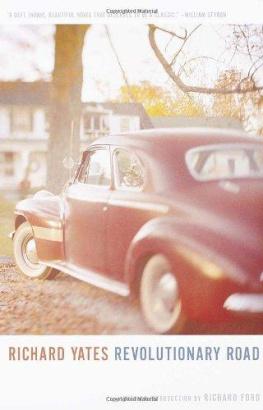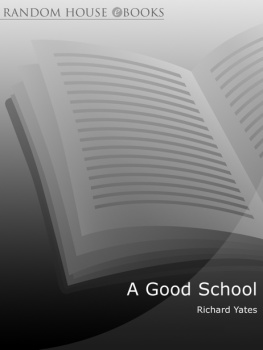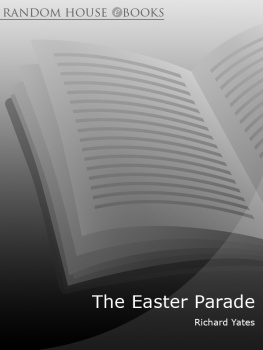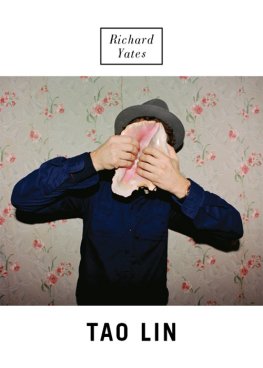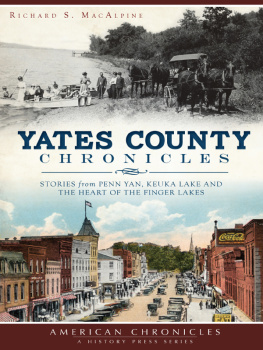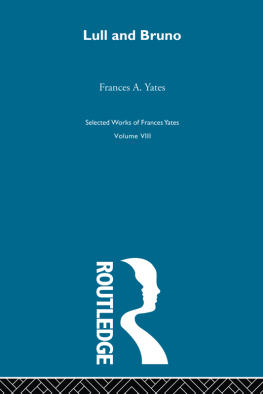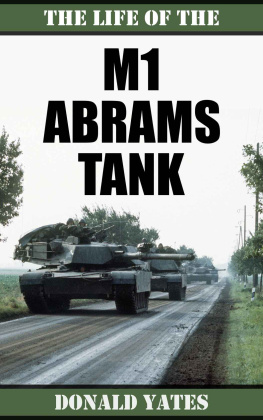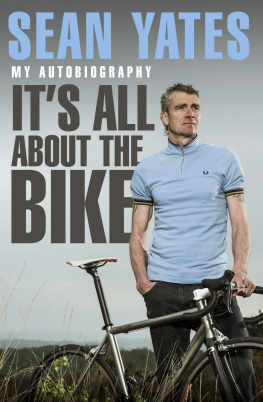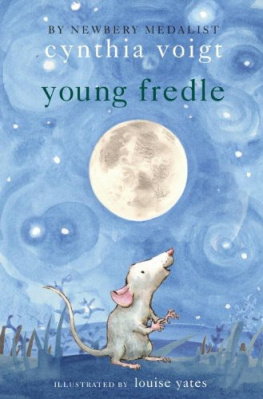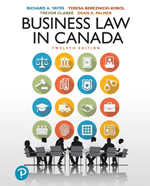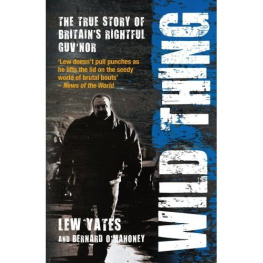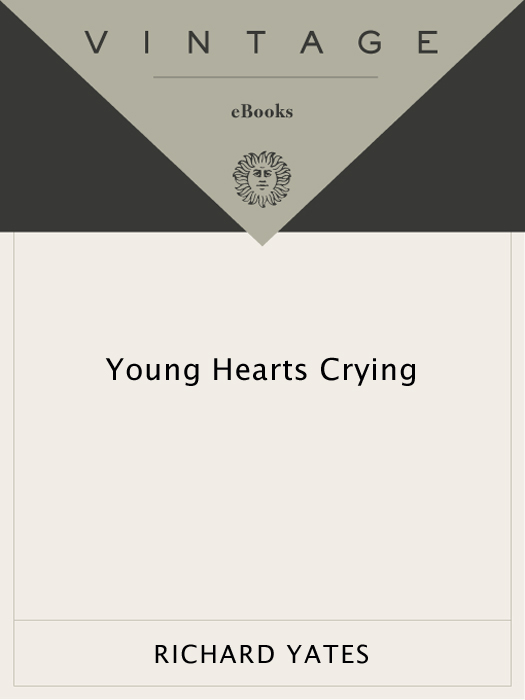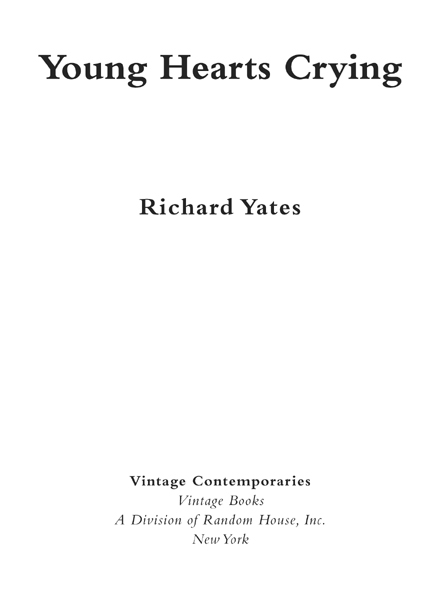Acclaim for Richard Yates
One of Americas best-kept secrets. Keenly insightful, brutally honest delivering a swift kick to the heart.
The Denver Post
Yates writes powerfully and enters completely and effortlessly into the lives of his characters.
The New York Times Book Review
[Yates] is an expert. Time
Soft-spoken in his prose and terrifyingly accurate in his dialogue, Yates renders his characters with such authenticity that you hardly realize what hes done. The Boston Globe
Whats exhilarating about Yates is not his grasp of The Truth, but the purity of his vision and the perfection of his craft.
Newsday
Richard Yates is a writer of commanding gifts. His prose is urbane yet sensitive, with passion and irony held deftly in balance. And he provides unexpected pleasures in a flood of freshly minted phrases and in the thrust of sudden insight, precise notation of feeling, and mordant unsentimental perceptions.
Saturday Review
It is Yatess relentless, unflinching investigation of our secret hearts, and his speaking to us in language as clear and honest and unadorned and unsentimental and uncompromising as his vision, that makes him such a great writer. Richard Russo
Mr. Yatess eye and ear are, I believe, unsurpassed; I know of no writer whose senses are in more admirable condition. It is they that make his characters live, make these stories move and beatthey, and possibly another asset, the sure perfection of his writing. Dorothy Parker, Esquire
If more is needed to make a masterpiece in modern American fiction [Revolutionary Road], I am sure I dont know what it is.
Tennessee Williams
Richard Yates
Young Hearts Crying
Richard Yates was born in 1926. The author of several acclaimed works of fiction, including Revolutionary Road, Eleven Kinds of Loneliness, Disturbing the Peace, and The Easter Parade, he was lauded during his lifetime as the foremost novelist of the postwar age of anxiety. He died in 1992.
Books by Richard Yates
Revolutionary Road
Eleven Kinds of Loneliness
A Special Providence
Disturbing the Peace
The Easter Parade
A Good School
Liars in Love
Young Hearts Crying
Cold Spring Harbor
The Collected Stories of Richard Yates
FIRST VINTAGE CONTEMPORARIES EDITION, MARCH 2009
Copyright 1984 by Richard Yates
All rights reserved. Published in the United States by Vintage Books, a division of Random House, Inc., New York, and in Canada by Random House of Canada Limited, Toronto. Young Hearts Crying was originally published in the United States by Delacorte Press/Seymour Lawrence, New York, in 1984.
Vintage and colophon are registered trademarks and Vintage Contemporaries is a trademark of Random House, Inc.
This is a work of fiction. Names, characters, places, and incidents either are the product of the authors imagination or are used fictitiously. Any resemblance to actual persons, living or dead, events, or locales is entirely coincidental.
Grateful acknowledgment is made to the following for permission to reprint previously published material:
Hal Leonard Corporation: Excerpt from I Want to Hold Your Hand words and music by John Lennon and Paul McCartney, copyright 1963 by Northern Songs Ltd., copyright renewed. All rights in the United States and Canada controlled and administered by Songs of Universal, Inc. All rights reserved. Reprinted by permission of Hal Leonard Corporation.
New Directions Publishing Corp.: Brief excerpts from Scene Two and Scene Four from A Streetcar Named Desire by Tennessee Williams, copyright 1947 by The University of the South. Reprinted by permission of New Directions Publishing Corp.
Viking Penguin, a division of Penguin Group (USA) Inc.: Watching the Needle-boats at San Sabba from Collected Poems by James Joyce, copyright 1918 by B. W. Huebsch, Inc., 1927, 1936 by James Joyce, 1946 by Nora Joyce. Reprinted by permission of Viking Penguin, a division of Penguin Group (USA) Inc.
The Cataloging-in-Publication Data is on file at the Library of Congress.
eISBN: 978-0-307-77265-7
www.vintagebooks.com
v3.1
To my three daughters
CONTENTS
PART ONE
Chapter One
By the time he was twenty-three, Michael Davenport had learned to trust his own skepticism. He didnt have much patience with myths or legends of any kind, even those that took the form of general assumptions; what he wanted, always, was to get down to the real story.
He had come of age as a waist-gunner on a B-17, toward the end of the war in Europe, and one of the things hed liked least about the Army Air Force was its public-relations program. Everybody thought the Air Force was the luckiest, happiest branch of the service better fed and quartered and paid than any other, given more personal freedom, given good clothes to be worn in a casual style. Everybody understood, too, that the Air Force couldnt be bothered with the petty side of military discipline: Flying and daring and high comradeship were esteemed over any blind respect for rank; officers and enlisted men could pal around together, if they felt like it, and even the regulation Army salute became a curled-up, thrown-away little mockery of itself in their hands. Soldiers of the ground forces were said to refer to them, enviously, as fly-boys.
And all that stuff was probably harmless enough; it wasnt worth getting into any arguments about; but Michael Davenport would always know that his own Air Force years had been humbling and tedious and bleak, that his times in combat had come close to scaring the life out of him, and that hed been enormously glad to get out of the whole lousy business when it was over.
Still, he did bring home a few good memories. One was that he had lasted through the semifinals as a middleweight in the boxing tournament at Blanchard Field, Texas not many other lawyers sons from Morristown, New Jersey, could claim a thing like that. Another, which came to take on philosophical proportions the more he thought about it, was a remark made one sweltering afternoon by some nameless Blanchard Field gunnery instructor in the course of an otherwise boring lecture.
Try to remember this, men. The mark of a professional in any line of work I mean any line of work is that he can make difficult things look easy.
And even then, brought awake among the sleepy trainees by that piercing idea, Michael had known for some time what line of work it was that he wanted eventually to make his mark in as a professional: he wanted to write poems and plays.
As soon as the Army set him free he went to Harvard, mostly because that was where his father had urged him to apply, and at first he was determined not to be taken in by any of the myths or legends of Harvard, either: he didnt even care to acknowledge, let alone to admire, the physical beauty of the place. It was school, a school like any other, and as grimly eager as any other to collect its share of his GI Bill of Rights money.
But after a year or two he began to relent a little. Most of the courses were stimulating; most of the books


